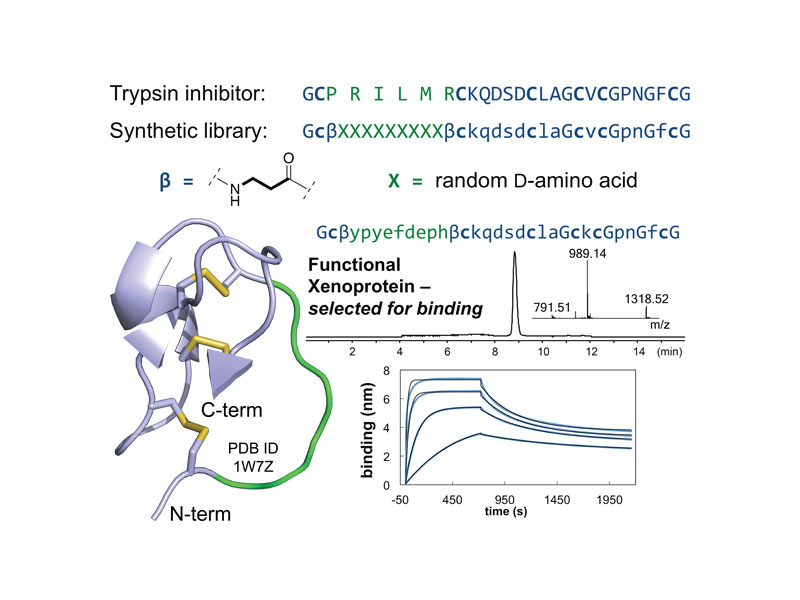
Xenoprotein engineering via synthetic libraries

Xenoprotein engineering via synthetic libraries
PNAS June 5, 2018. 115 (23) E5298-E5306; published ahead of print May 21, 2018. https://doi.org/10.1073/pnas.1722633115
Zachary P. Gates, Alexander A. Vinogradov, Anthony J. Quartararo, Anupam Bandyopadhyay, Zi-Ning Choo, Ethan D. Evans, Kathryn H. Halloran, Alexander J. Mijalis, Surin K. Mong, Mark D. Simon, Eric A. Standley, Evan D. Styduhar, Sarah Z. Tasker, Faycal Touti, Jessica M. Weber, Jessica L. Wilson, Timothy F. Jamison, and Bradley L. Pentelute
Abstract
Chemical methods have enabled the total synthesis of protein molecules of ever-increasing size and complexity. However, methods to engineer synthetic proteins comprising noncanonical amino acids have not kept pace, even though this capability would be a distinct advantage of the total synthesis approach to protein science. In this work, we report a platform for protein engineering based on the screening of synthetic one-bead one-compound protein libraries. Screening throughput approaching that of cell surface display was achieved by a combination of magnetic bead enrichment, flow cytometry analysis of on-bead screens, and high-throughput MS/MS-based sequencing of identified active compounds. Direct screening of a synthetic protein library by these methods resulted in the de novo discovery of mirror-image miniprotein-based binders to a ∼150-kDa protein target, a task that would be difficult or impossible by other means.



